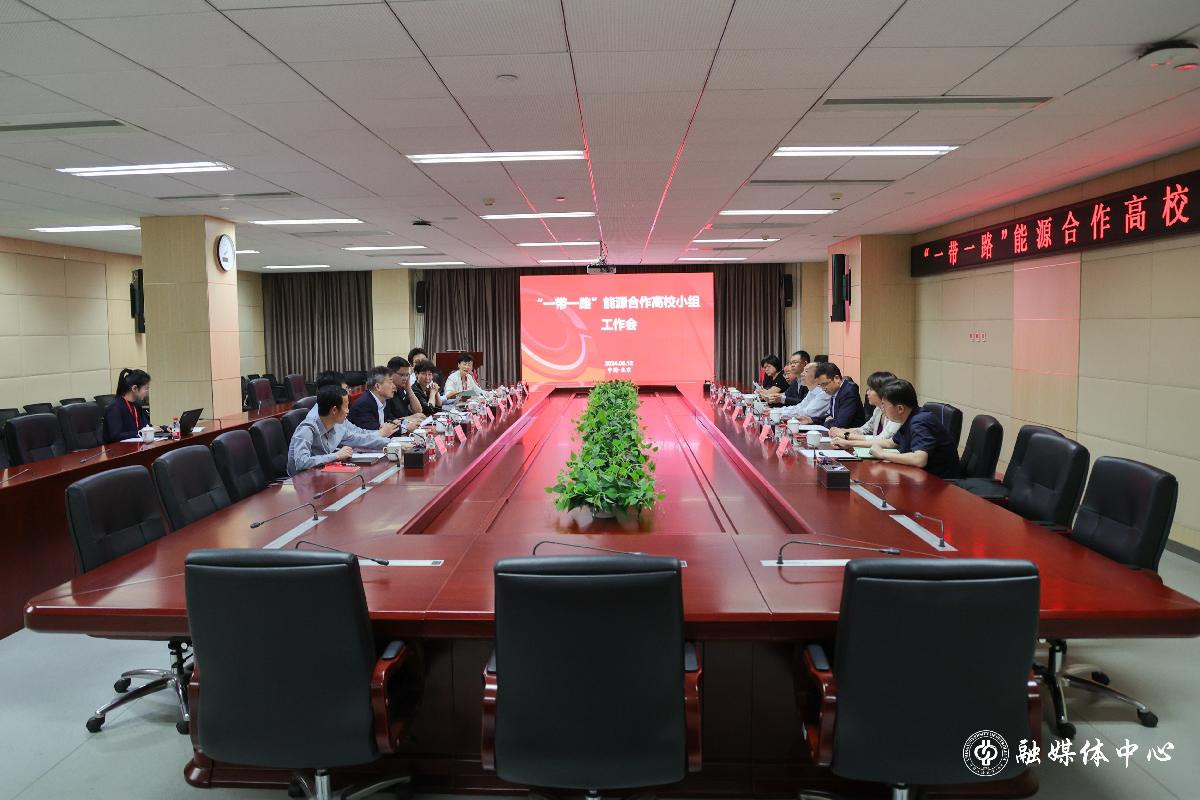On the first anniversary of President Xi Jinping's reply to Central Asian students at China University of Petroleum (CUP), the working session of the University (Youth) Working Group of the Belt and Road Energy Cooperation Partnership Network held a working session at CUP. Ding Wei, Deputy Director of the Comprehensive Division of the International Department of the National Energy Administration, along with representatives from member institutions such as Tsinghua University, Peking University, Tianjin University, Shandong University, Northwestern Polytechnical University, China University of Petroleum (East China), Nanjing University, and Beijing Jiaotong University attended the meeting. Bao Zhidong, Vice President of CUP, and the head of the International Office of the university also participated in the session.

Ding Wei fully acknowledged the achievements of the University (Youth) Working Group, noting that the group has made significant contributions to energy education cooperation under the Belt and Road Initiative. He praised the group for its remarkable successes in student exchange, scientific research collaboration, and industry-university-research integration. He emphasized the importance of Belt and Road cooperation and the pivotal role of energy cooperation in the joint construction of the Belt and Road. Ding further emphasized the significance of the Working Group in spearheading soft cooperation in the energy sector. He expressed his hope that the Working Group would deeply understand the important speech delivered by President Xi Jinping at the Third Belt and Road International Cooperation High-Level Forum, prioritize its work, conduct in-depth research on Belt and Road countries. Ding urged the group to effectively communicate China's energy development story, strengthen cooperation with domestic and international energy enterprises, and promote high-quality development in energy education cooperation under the Belt and Road Initiative. Ding assured that the National Energy Administration would continue to provide necessary support to the Working Group.
The head of the International Office of China University of Petroleum (CUP) presented a report on behalf of the university, outlining the establishment background, work content, and development vision of the Working Group. He also highlighted seven key resource areas that the Working Group could prioritize. Representatives from each member institution took the floor to introduce their respective professional fields, key work, and achievements in energy education cooperation under the Belt and Road Initiative. They introduced the international exchange resources they could provide to other member units. The participants expressed their hope that the Working Group could strengthen communication and coordination, achieve resource sharing in areas such as research platforms, talent cultivation, youth exchange, and industry-university-research integration. They aim to effectively contribute to the deepening and solidification of energy education cooperation under the Belt and Road Initiative.
In his concluding remarks, Bao Zhidong acknowledged the achievements of all member units and expressed confidence in the development of the Working Group. He emphasized the need for all member units to further strengthen international cooperation in energy education, collaborate in areas as platform building, scientific research cooperation, talent cultivation, and youth exchange, and achieve mutual benefits. He highlighted the importance of jointly providing strong scientific, technological, and talent support for building a powerful energy nation. He expressed his hope that the National Energy Administration would provide more guidance and support to the University (Youth) Working Group, helping to elevate international cooperation in energy education to a new level.
In October 2021, at the Second Belt and Road Energy Ministers' Meeting hosted by the National Energy Administration, the Belt and Road Energy Partnership Cooperation Network, comprising seven working groups, was officially announced. China University of Petroleum (CUP) served as the chair unit of the University (Youth) Working Group, with 16 universities or secondary units from across the country serving as members. By the end of the same year, the Working Group held its first meeting online. In the three years since its establishment, CUP has actively fulfilled its responsibilities as the chair unit, with close cooperation from all member institutions. The Working Group has achieved remarkable results in platform construction, talent cultivation, youth exchange, and innovative cooperation models.

